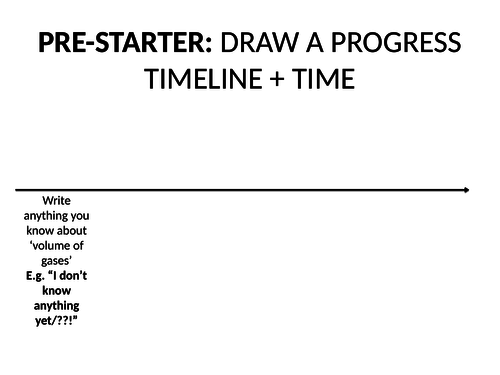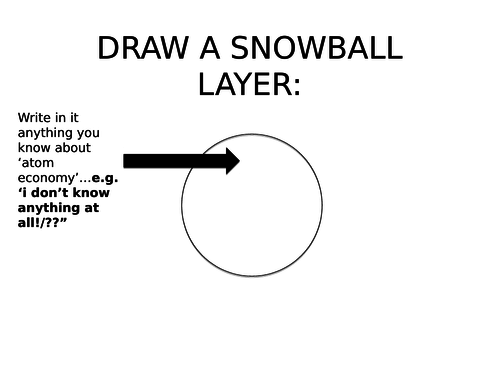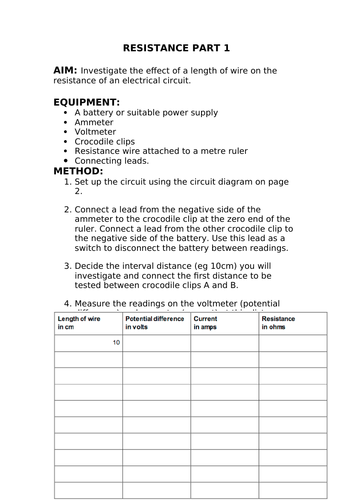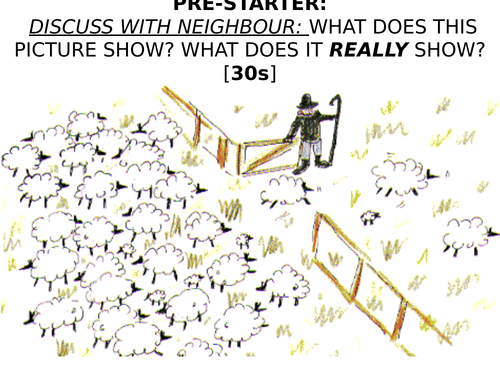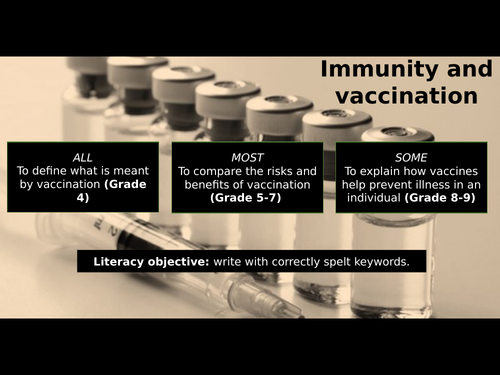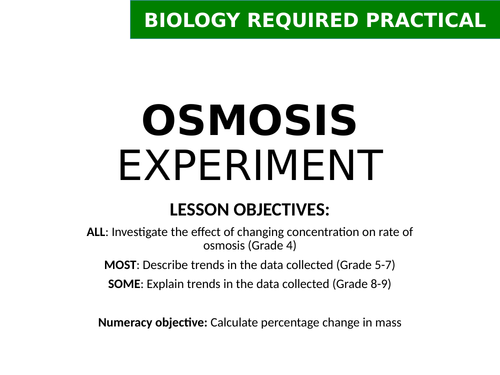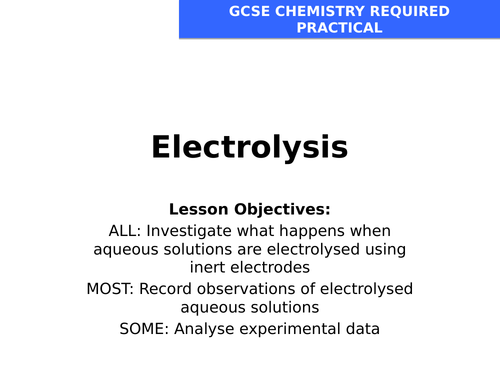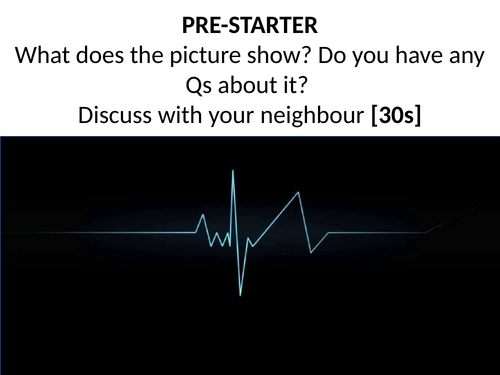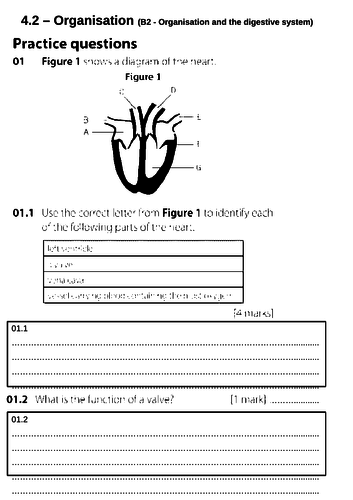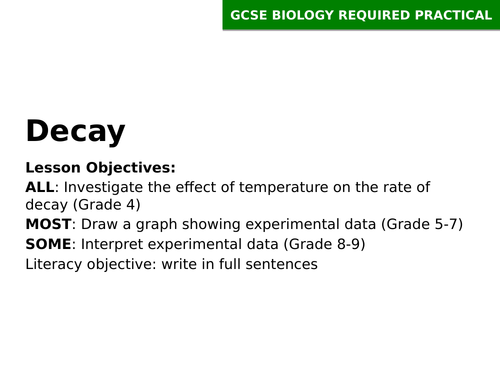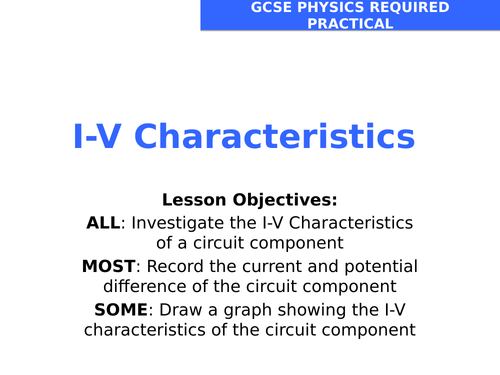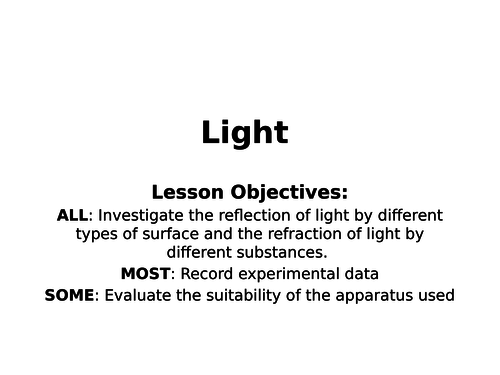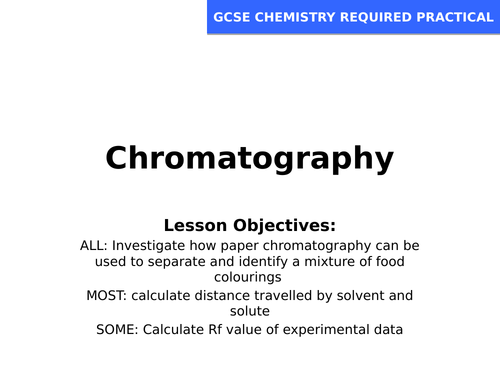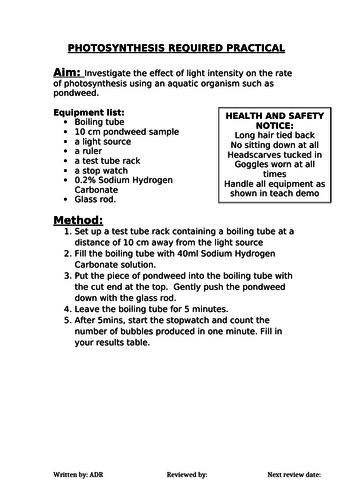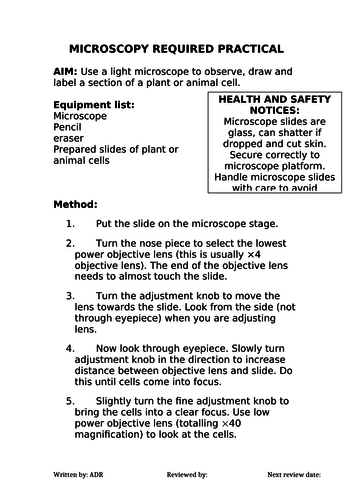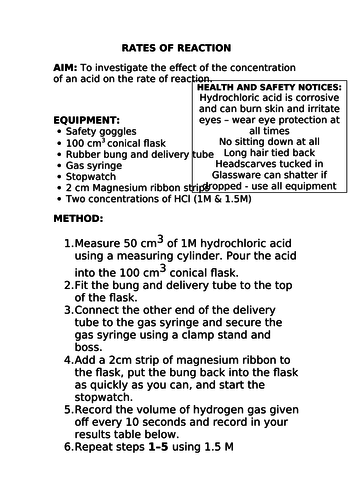172Uploads
30k+Views
2k+Downloads
All resources

2018 AQA GCSE Chemistry Unit 1 (C1): Quantitative Chemistry - Limiting Reactants L4
This is the lesson used to teach Limiting Reactants in accordance with the new 2018 AQA GCSE specification for Combined Science: Trilogy and GCSE Chemistry.
This high quality lesson has the following features:
Lessons have Bloom’s Taxonomy embedded throughout which are also graded for differentiation.
Stretch and challenge tasks throughout (including Grade 8-9+ questions and extended writing)
AfL (3 progress checks per lesson embedded)
Differentiation is strong as has been noted in all formal school observations for the last 2 years of teaching AQA. Observations of these lessons has always evidenced that these lessons are consistently of a ‘good’ OFSTED standard.
Narrative of lesson structure is clear and focused as well as engaging.
Pre-starter prepared.
All lessons are geared with top-down approach pedagogy and provide inclusive differentiation for low attaining and medium attaining pupils as well.
In order to take full advantage of this resource, it should be ‘tweaked’ to the needs of your own pupils.

2018 AQA GCSE Chemistry Unit 1 (C1): Quantitative Chemistry - Volume of Gases L10
This is the lesson used to teach Volume of Gases in accordance with the new 2018 AQA GCSE specification for Combined Science: Trilogy and GCSE Chemistry.
This high quality lesson has the following features:
Lessons have Bloom’s Taxonomy embedded throughout which are also graded for differentiation.
Stretch and challenge tasks throughout (including Grade 8-9+ questions and extended writing)
AfL (3 progress checks per lesson embedded)
Differentiation is strong as has been noted in all formal school observations for the last 2 years of teaching AQA. Observations of these lessons has always evidenced that these lessons are consistently of a ‘good’ OFSTED standard.
Narrative of lesson structure is clear and focused as well as engaging.
Pre-starter prepared.
All lessons are geared with top-down approach pedagogy and provide inclusive differentiation for low attaining and medium attaining pupils as well.
In order to take full advantage of this resource, it should be ‘tweaked’ to the needs of your own pupils.

2018 AQA GCSE Chemistry Unit 1 (C1): Quantitative Chemistry - Atom Economy L6
This is the lesson used to teach Atom Economy in accordance with the new 2018 AQA GCSE specification for Combined Science: Trilogy and GCSE Chemistry.
This high quality lesson has the following features:
Lessons have Bloom’s Taxonomy embedded throughout which are also graded for differentiation.
Stretch and challenge tasks throughout (including Grade 8-9+ questions and extended writing)
AfL (3 progress checks per lesson embedded)
Differentiation is strong as has been noted in all formal school observations for the last 2 years of teaching AQA. Observations of these lessons has always evidenced that these lessons are consistently of a ‘good’ OFSTED standard.
Narrative of lesson structure is clear and focused as well as engaging.
Pre-starter prepared.
All lessons are geared with top-down approach pedagogy and provide inclusive differentiation for low attaining and medium attaining pupils as well.
In order to take full advantage of this resource, it should be ‘tweaked’ to the needs of your own pupils.

2018 AQA GCSE Physics Unit 1 (P1): Resistance - Length of Wire Required Practical
This unique and high-quality pack contains all resources needed to deliver the Resistance - Length of Wire Required Practical for the new 2018 AQA GCSE Physics and AQA GCSE Combined Science: Trilogy specifications.

2018 AQA GCSE Biology Unit 1 (B1): Osmosis L7
This lesson is for teaching the above named lesson as part of the Cell Biology module of Biology Unit 1 (B1) of the new 2018 AQA GCSE specifications for Combined Science: Trilogy and GCSE Biology.
The lesson has the following features embedded:
Lesson has Bloom’s Taxonomy embedded throughout which are also graded for differentiation.
Stretch and challenge tasks throughout (including Grade 8-9+ questions and extended writing)
AfL (3 progress checks embedded)
Differentiation is strong as has been noted in all formal school observations for the last 2 years of teaching AQA.
Narrative of lesson structure is clear and focused as well as engaging.
Pre-starter prepared.
The lesson is geared with top-down approach pedagogy and provide inclusive differentiation for low attaining and medium attaining pupils as well.
The lesson should be ‘tweaked’ to meet the needs of your own pupils.

2018 AQA GCSE Biology Unit 1 (B1): Immunity and Vaccination L22
This lesson is for teaching the above named lesson as part of the Infection and Response module of Biology Unit 1 (B1) of the new 2018 AQA GCSE specifications for Combined Science: Trilogy and GCSE Biology.
The lesson has the following features embedded:
Lesson has Bloom’s Taxonomy embedded throughout which are also graded for differentiation.
Stretch and challenge tasks throughout (including Grade 8-9+ questions and extended writing)
AfL (3 progress checks embedded)
Differentiation is strong as has been noted in formal school observations for the last 2 years of teaching AQA.
Narrative of lesson structure is clear and focused as well as engaging.
Pre-starter prepared.
The lesson is geared with top-down approach pedagogy and provide inclusive differentiation for low attaining and medium attaining pupils as well.
The lesson should be ‘tweaked’ to meet the needs of your own pupils.

2018 AQA GCSE Combined Science and Separate Science Required Practical Powerpoints
This contains a powerpoint and an accompanying method sheet for all required practicals for the 2018 AQA GCSE Separate Science and GCSE Combined Science: Trilogy pathways. The exam questions on the method sheets are the questions students need to be prepared to answer should they asked of them in the exams.

2018 AQA GCSE Biology Unit 1 (B1): Osmosis Required Practical
This pack contains all resources needed to deliver the Osmosis Required Practical for AQA GCSE Biology and Combined Science: Trilogy for the new 2018 AQA GCSE science specifications.

2018 AQA GCSE Chemistry Unit 1 (C1): Electrolysis Required Practical
This unique and high-quality pack contains all resources needed to deliver the Electrolysis Required Practical for the new 2018 AQA GCSE Chemistry and AQA GCSE Combined Science: Trilogy specifications.

2018 AQA GCSE Physics Unit 1 (P1): Radiation and Absorption Required Practical
This unique and high-quality pack contains all resources needed to deliver the Radiation and Absorption Required Practical for the new 2018 AQA GCSE Physics and AQA GCSE Combined Science: Trilogy specifications.

2018 AQA GCSE Biology Unit 1 (B1): Pacemakers L12
This lesson is for teaching the above named lesson as part of the Organisation module of Biology Unit 1 (B1) of the new 2018 AQA GCSE specifications for Combined Science: Trilogy and GCSE Biology.
The lesson has the following features embedded:
Lesson has Bloom’s Taxonomy embedded throughout which are also graded for differentiation.
Stretch and challenge tasks throughout (including Grade 8-9+ questions and extended writing)
AfL (3 progress checks embedded)
Differentiation is strong as has been noted in all formal school observations for the last 2 years of teaching AQA.
Narrative of lesson structure is clear and focused as well as engaging.
Pre-starter prepared.
The lesson is geared with top-down approach pedagogy and provide inclusive differentiation for low attaining and medium attaining pupils as well.
The lesson should be ‘tweaked’ to meet the needs of your own pupils.

2018 AQA GCSE Biology Unit 2 (B2): Decay Required Practical
This unique and high-quality pack contains all resources needed to deliver the Decay Required Practical for the new 2018 AQA GCSE Biology and GCSE Combined Science: Trilogy specification.

KS3 National Curriculum Exam Question Packs for Physics - with Mark Schemes
This high quality pack contains very large exam question packs (with mark schemes) ranging from low level to high level challenge suitable for pupils off all set of attainment. There is an exam question pack for each and every topic of KS3 Physics.

2018 AQA GCSE Physics Unit 1 (P1): I-V Characteristics Required Practical
This unique and high-quality pack contains all resources needed to deliver the I-V Characteristics Required Practical for the new 2018 AQA GCSE Physics and AQA GCSE Combined Science: Trilogy specifications.

2018 AQA GCSE Physics Unit 2 (P2): Light Required Practical
This unique and high-quality pack contains all resources needed to deliver the Light Required Practical for the new 2018 AQA GCSE Physics specification.

2018 AQA GCSE Chemistry Unit 2 (C2): Chromatography Required Practical
This unique and high-quality pack contains all resources needed to deliver the Chromatography Required Practical for the new 2018 AQA GCSE Chemistry and AQA GCSE Combined Science: Trilogy specifications.

2018 AQA GCSE Biology Unit 1 (B1): Photosynthesis Required Practical
This pack contains all resources needed to deliver the Photosynthesis Required Practical for the new 2018 AQA GCSE Biology specification.

2018 AQA GCSE Biology Unit 1 (B1): Microscopy Required Practical
This pack contains all resources needed to deliver the Microscopy Required Practical for AQA GCSE Biology and Combined Science: Trilogy for the new 2018 AQA GCSE science specifications.

2018 AQA GCSE Chemistry Unit 2 (C2): Rates of Reaction Required Practical
This unique and high-quality pack contains all resources needed to deliver the Rates of Reaction Required Practical for the new 2018 AQA GCSE Chemistry and AQA GCSE Combined Science: Trilogy specifications.


